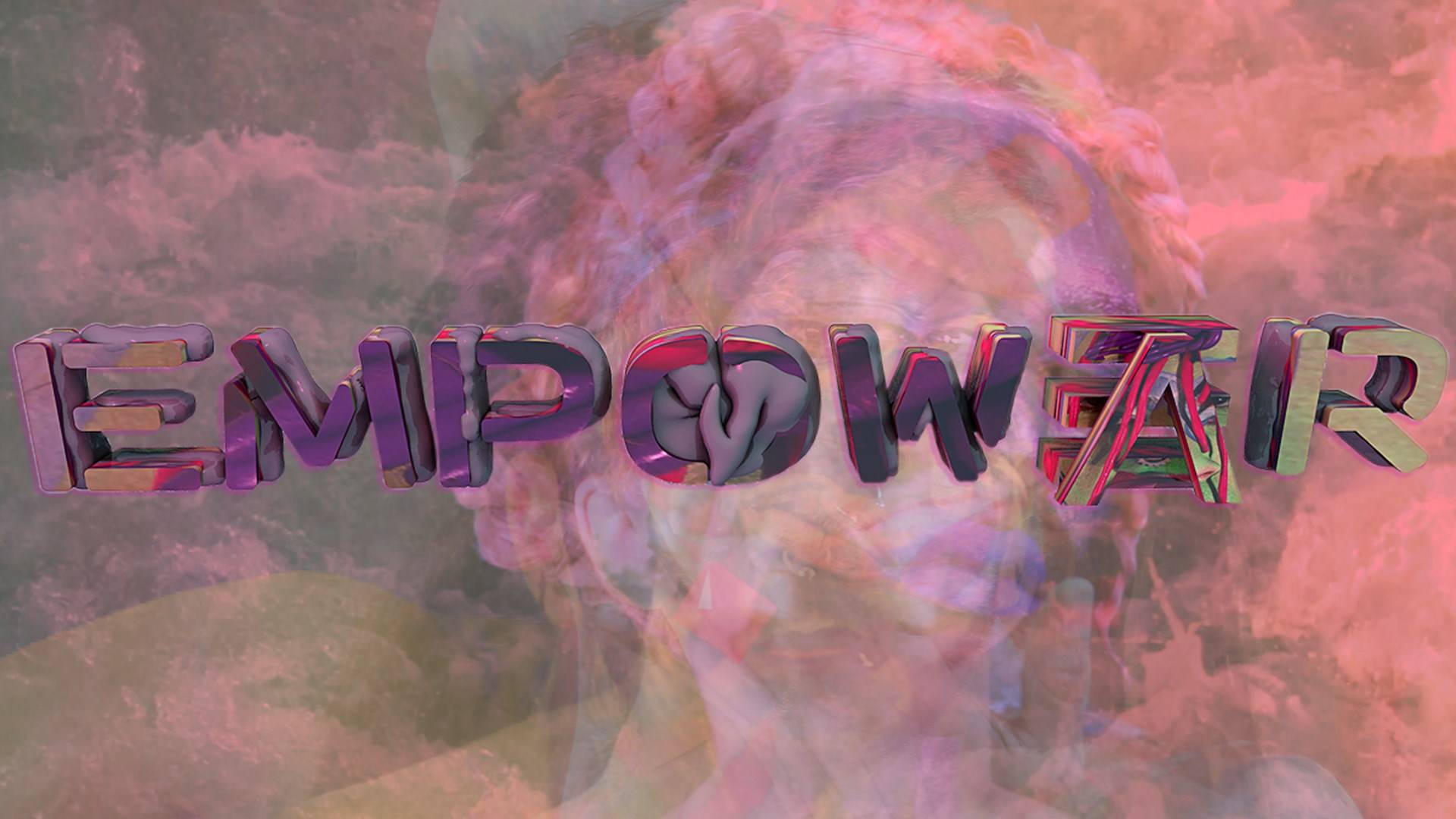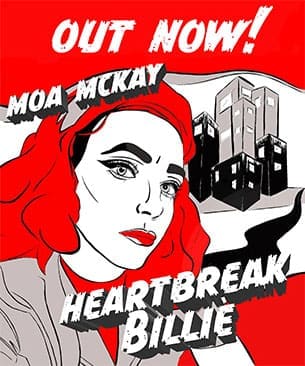IndieBerlin met Sanni in the new larger-capacity venue where the two-day festival will flourish : Flutgraben e.V.
The historic and picturesque multi-functional art and community space in Kreuzberg will welcome, this week end, the astonishing performances of the Empowe/AR festival such as its queer cyborg manifesto, its virtual and augmented reality performances and its strikingly modern and inclusive concert programming. Sanni speaks to us about her arrival in Berlin as a Brazilian trans woman and how her awareness about her social condition as well as her experiences as a talented artist led her to the creation of the unique Empowe/AR festival, an event that liberates the voice of underprivileged beings and artists in society and empowers a generation to accept, embrace and celebrate themselves and their culture.
Could you tell us about the creation and history of Empowe/AR?
Of course ! The idea of Empowe/AR started in 2017 and it was originally a club night. I was still working as a bartender at the time but I also started DJing. That’s when I realized that I had more difficulties networking and getting booked compared to other DJs that were mostly cis men and straight men. I realized how stronger their network was and how absent the inclusivity of other bodies was. There were also many different situations in which I was underprivileged. Underprivileged because I was often exotified for being a Latina or some people could be transphobic and find it weird that a « tranny » wanted to work in their business. Or just maybe because I am a woman, they wouldn’t take me seriously. So for many reasons that are also known as intersectionality, I found it very hard to succeed in my position and I really wanted to have a party of my own. When I started to perform live, that’s when I knew I wanted a multidisciplinary event. I didn’t want Empowe/AR to just be a club night. The festival has so many different disciplines. There are exhibitions, a very important visual art component and audiovisual performances. I’m basically uniting al of my artistic passions in one and only event.
So far, what are you most proud of with this second edition of Empowe/AR?
Last year the festival was much smaller, it happened for only one day and it took place in another space that was also smaller. The communication wasn’t ideal as well. But this year what I’m mostly proud of is the community that’s coming together. You see, I’m a person of color, I’m a woman and I’m a trans woman, I’m an immigrant and I’m from the lower class. And when I try to connect to trans people, they are mostly focused on only trans networks. When I try to connect to feminist networks, wether it’s in Germany, Europe or Berlin, they are mostly white cis feminists and so on. So my goal, even if some groups don’t go well together, was to bring these people together. Our team is a very mixed group of people. There are cis women, cis black men from brazil, non-binary people, trans masculine people from Poland and England. Seeing these people, who probably wouldn’t meet or talk to each other in another context ,working together, makes me very proud. They also are very talented people that are very good at what they do.
You have very diverse and unique programming, how do you find the performers for the festival ?
That’s a good question! Obviously I visit art spaces and performances that are by people whose approach I find interesting. One big component of my curation for this festival is that I like artists who are not restricted to their identity or to their social group but who still use their own narrative to potentially elaborate something that is socially more relevant than just themselves or white cis narratives. I also can find them on internet or through my personal network. I’ve been here for 12 years as a DJ and an artist and that gave me the opportunity to meet many talented people and artists.
Could you tell us about when you arrived in Berlin from Brazil?
Berlin is certainly better than other German cities but, yeah it was hard. And I think the hardest part was that I came so young. I arrived here when I was 18 and I wasn’t aware of all the things that I’m talking about today. I wasn’t aware that I was a multi layered discriminated person or even underprivileged. Since I was from a different culture, I didn’t know if German people were just unfriendly to me or if they had a problem with me. Here, discrimination is more subtle than in Brazil where it’s much more violent, physically and mentally. The hardest part was definitely to understand what was going on and what I needed to do to be taken seriously.
You’re an artist yourself, do you want to talk about your own projects?
Sure! I actually performed at the festival last year. Empowe/AR is a project that I started because I wanted to have decision power over how I wanted to perform. When I started performing live I noticed that many times, venues did not respect artists. I don’t know if it’s a Berlin thing or if it’s because I’m not a white guy but many times, you arrive to the venue and you have surprises. Surprises that often affect your performance and put you in an uncomfortable situation. It’s very hard especially when you’re starting. I’m not performing this year because the festival is getting bigger than me.
However I do have a live show on the 29th at Werkstatt Der Kulturen Berlin. I am performing lice with my ensemble which is composed of a synthesizer as well as African Brazilian percussionists. My own work reflects a lot on the festival. For example I’m fascinated by technology and I want marginalized groups to appropriate technology to themselves. It’s a discipline that’s highly dominated by wealthy cis white people and I want us to have a say in there. Also, when you are dealing with so many different things in your life such as discrimination or social injustice, the first thing that you ask yourself isn’t : « What can I do to change the world » it’s « What can I do to survive ». One of the reasons why I moved to Berlin is that I didn’t want to be dealing with survival all the time. I wanted to have this mind space.
Do you want to add something?
I do want to add that the festival is open to everybody. It’s a politically engaged event but that does not mean some people mustn’t feel welcome there too. My approach is also historical reparation. Of course I don’t mind if white men want to come to the event. If we want to be able to leave a mark and do something, we need funds and institutional support as well. As long as the guideline of the festival is respected, it is open to everybody.
It is sitting on the stage on which the concerts of the festival will occur that Sanni talked us through her creation of the festival with passion and wisdom. The Empowe/AR festival, more than being a space for discussion and sharing among Berlin’s communities, is an event with exceptional artistic diversity. You will have the chance to discover their queer cyborg manifesto as a sound installation as well as the very honest performance by artist Paulete Escarlate « Lost in the Dust » in which she connects systematization skills and image-focused production while cleaning houses in Berlin and shows the reality of being Latin-American-trans-non-binary immigrant in the city. And more! Movie projections, virtual and augmented reality, the Empowe/AR festival has grown so much for its second edition and will soon be a cult event in Berlin.
Support the festival and its engagement and help them remunerate the extended group of volunteers working hard on the festival’s accessibility, promotion and production altogether here.
Follow the festival : Facebook – Instagram
Follow Sanni : Facebook – Instagram
Photo credit : Tina Escarlatina, Christian Gaul, Pansy’s Paradise, Mandhla Ndubiwa,


